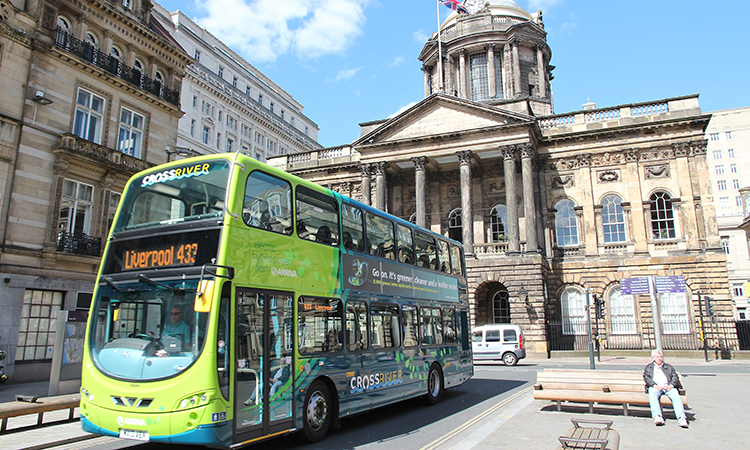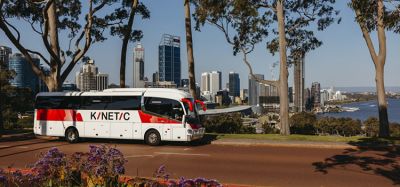UK government provides £150 million to protect local transport services
- Like
- Digg
- Del
- Tumblr
- VKontakte
- Buffer
- Love This
- Odnoklassniki
- Meneame
- Blogger
- Amazon
- Yahoo Mail
- Gmail
- AOL
- Newsvine
- HackerNews
- Evernote
- MySpace
- Mail.ru
- Viadeo
- Line
- Comments
- Yummly
- SMS
- Viber
- Telegram
- Subscribe
- Skype
- Facebook Messenger
- Kakao
- LiveJournal
- Yammer
- Edgar
- Fintel
- Mix
- Instapaper
- Copy Link
Posted: 2 March 2022 | Intelligent Transport | No comments yet
Building on two years’ worth of unprecedented government support to keep bus and light rail networks running, the UK government’s new funding package will support operators across England in their post-pandemic recovery.


The UK government has announced that it will be providing over £150 million in funding to safeguard local transport services across England. This will support bus and light rail operators to ensure that their services continue to run, so that millions of passengers can continue to get around as the country emerges from the pandemic. Representing the final tranche of pandemic-related support to operators, this will run for a period of six months, until October 2022.
Announced on 1 March 2022, the funding package builds on almost two years’ worth of unprecedented government support to keep bus and light rail networks running, with around £2 billion made available to over 160 operators during the pandemic.
As well as supporting operators and authorities as they adapt to changing travel patterns, this new funding will also help the continued delivery of enhanced partnerships, with local authorities working closely with bus companies to draw on their operating knowledge and marketing skills.
Furthermore, it will support local authorities and operators across England as they continue working on Bus Service Improvement Plans (BSIPs) and delivering substantive improvements to local services.
The UK’s Transport Secretary, Grant Shapps, said: “The funding that I’ve announced today will ensure that millions of us can continue to use vital public transport services and brings the total that we’ve provided to the sector to keep services running throughout the pandemic to over £2 billion. Not only that, as we look ahead and continue our work to overhaul services and build back better from the pandemic, this funding will also help authorities and operators to work together to provide even better services for people right across the country.”
The UK government will be investing over £3 billion in bus services by 2025, including £1.2 billion to improve fares, services and infrastructure, and a further £525 million for zero-emission buses.
Graham Vidler, Chief Executive of the Confederation of Passenger Transport (CPT), said: “Over the coming months, operators will be working closely with local authorities to plan future bus networks and introduce plans to grow passenger numbers. To aid these local efforts, we look forward to working with the government to loudly promote bus travel. This funding is dependent on local areas and operators co-designing a financially sustainable and passenger-focused public transport network, that works for changing travel patterns post-pandemic.”
David Sidebottom, Director at the independent watchdog Transport Focus, said: “Key workers and the many millions of people who rely on tram and metros will welcome the news that the government is set to provide further support for services. Operators and local authorities must continue to work together to attract passengers back. Maintaining an attractive network for the longer term will be vital for delivering the government’s aims on climate change and cleaner air.”
The Go-Ahead Group‘s Chief Executive, Christian Schreyer, said: “We welcome this funding for local buses, which will allow the industry time to build back passenger numbers. We’ve bounced back well from the Omicron variant, and our buses are carrying about 80 per cent of the number of passengers that they had before the pandemic. But working habits have changed, and it will take a little longer for a ‘new normal’ to settle in. In time, there are excellent prospects for bus usage to grow across Britain. Funding under the National Bus Strategy for bus lanes and priority schemes will speed up services in towns and cities, making them more attractive to passengers and allowing us to increase frequencies. If Britain is to move towards a net zero future, it is vital that people leave their cars at home and switch to public transport. This short-term finance will go some way towards bridging the gap and will help us build a broader network of successful bus services.”
Related topics
Accessibility, Alternative Power, COVID-19, Fleet Management & Maintenance, Infrastructure & Urban Planning, Passenger Experience, Public Transport, Sustainable Urban Transport, Ticketing & Payments, Transport Governance & Policy
Related modes
Bus & Coach, Light Rail
Related countries
United Kingdom
Related organisations
Confederation of Passenger Transport UK (CPT), Go-Ahead Group, Transport Focus, UK Government
Related people
Christian Schreyer, David Sidebottom, Graham Vidler, Grant Shapps








